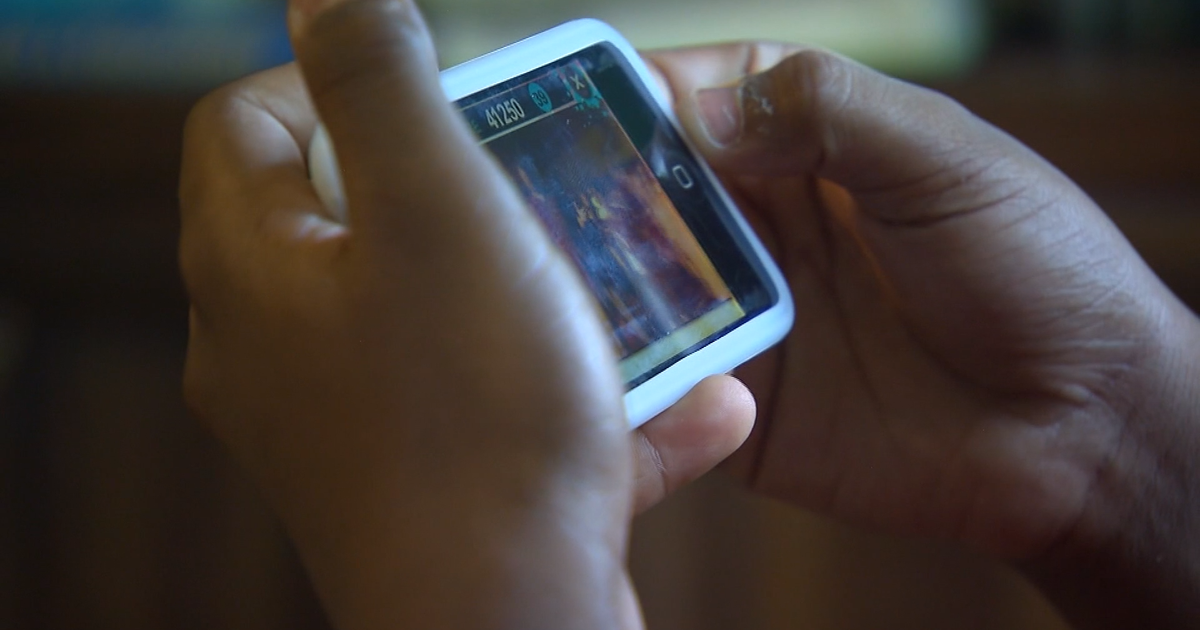HARRISBURG— Three Pennsylvania state senators have officially introduced legislation to ban phones in schools.
Last session, former state senator Ryan Aument gave a copy of the book “The anxious generation” to every state senator. Now, one Republican and two Democrats are co-sponsoring a strict phone ban mandate, with broad support from other senators on the proposal.
SB 1014 calls for a “bell to bell” ban on phone use in public schools—specifically, prohibiting students from using the device, or having it in their possession. The bill leaves it up to schools for how to enforce the policy.
“Because for every school, you know, their resources are a little different and we thought it was better to give them that flexibility,” said Sen. Steve Santarsiero, one of the main co-sponsors of the bill.
There would be exceptions for students with medical or individualized education needs, or permission for teachers to use devices as part of a lesson.
Santarsiero says phones distract from learning, harm attention spans and most critically—increase depression and anxiety.
“I think the consequences for this next generation of students is so are so extreme, if we don’t do it,” Santarsiero said, “that its important to have one rule that applies across the state.”
Some education advocacy groups, like the Pennsylvania School Board Association, have cautioned that not all districts have school devices students can use if phones are not allowed. Broadly, the association says it’s best to let local elected officials make the policy choice.
Gov. Josh Shapiro (D) has previously said he supports schools keeping autonomy on the issue. Sen. Santarsiero says he believes the governor could be swayed on the topic, and that lawmakers are ready to engage advocates who have concerns.
There is also a push for a statewide ban happening in the house, lead by Rep. Mandy Steele (D). that also has Republican co-sponsors.
State Experience
Over 20 states have enacted total phone bans in schools according to Ballotpedia—including New York.
“I want to compliment our kids here at Horseheads, because they have lived up to our expectations of, ‘out of sight and put it away’,” said Dr. Thomas Douglas, superintendent for the Horseheads Central School District.
The school, located close to Pennsylvania’s northern tier border, had a previous ‘no phone’ policy for their elementary and middle school buildings; so the biggest adjustment was for the high school.
“The students, for the most part, when the policy was still being handed down, would always say, ‘well, are the adults going to follow it?’,” Douglas said. “Well, the adults are expected to model, and we do that,”
From an administrative standpoint, the state mandate has been helpful in committing to a policy that can stir controversy.
“Because now it’s not pitting us against student, pitting us against the family. It is the law of the state and we must comply. And if somebody has a problem with it, we know exactly where we can tell them to go and contact,” Douglas said.
New York’s policy is a ban on all “internet enabled devices”, which includes bluetooth earbuds/headphones. The law allows phones to be kept in lockers or backpacks, but schools can also choose to collect the phones at the doors or use other methods.
In Horseheads, students are allowed to have the phones in their backpacks, though the device should be powered off. If a student has an issue with keeping their device off— the school has invested in pouches with very loud velcro and RFID lining that disconnects devices from the internet. If a student really has an issue, they get a velcro pouch with a manual lock on it.
Douglas says the district did not see an increase in disciplinary issues in the first month, though some students are getting antsy into month two.
Anecdotally, the superintendent says some students have pondered that their grades will get better, and they say not worrying about social media drama is a relief.
“Some of the individual students have said ‘My stress level has gone down because I’m not worried about what somebody else is saying’,” Douglas said. “But here’s the problem. They also say, ‘but boy, it comes right back at 4:00 when I get home.”
Most parents Douglas has spoken with agree that social media is changing how their children or young adult is experiencing life. The superintendent says keeping dialogue open between schools and parents on how to address patterns and behavior online is critical.
“When they get back on, they still have to deal with it. So we have to teach that responsibility and the the resiliency to get out of things that are maybe not as well to your own personal well-being,” Douglas said.

